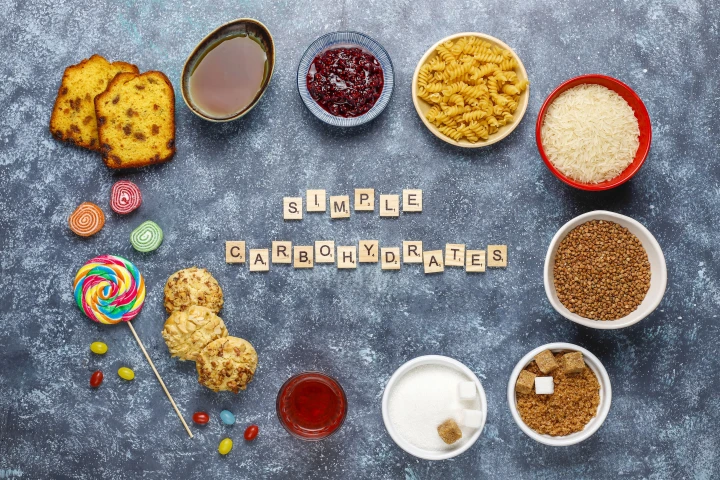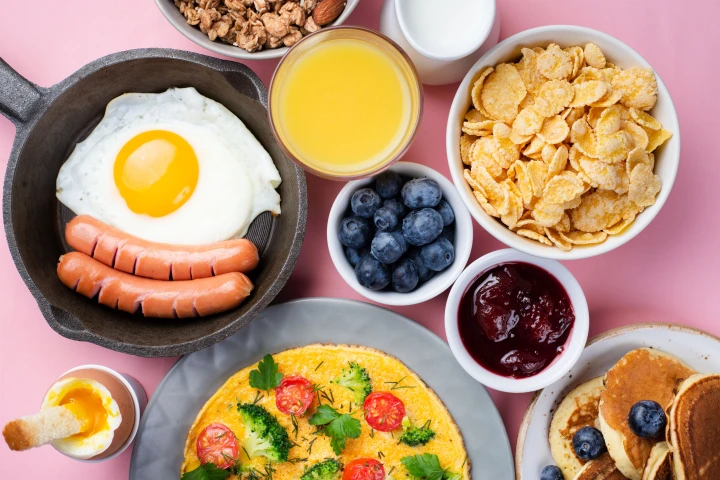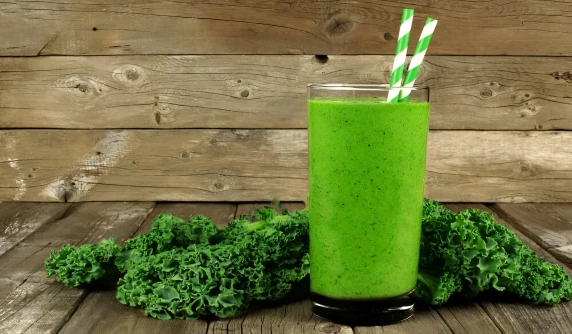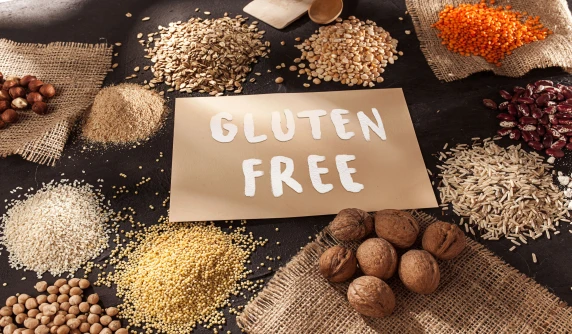
There are entire segments of the food industry dedicated to creating handy containers for the purpose of snacking, as it is a fairly prevalent behavior. Snacking, however, is a bad habit that everyone ought to try to give up.
Find out about the health risks associated with snacking and how to break the habit of eating between meals.
The Impact of Snacking on Health
Have you ever had a constant desire to snack? It appears that your health is suffering greatly. An unhealthy cycle can be initiated by eating continuously, which can raise insulin and blood sugar levels.
The Consequences of Emotional Eating
It is more detrimental than we realize to eat our emotions. When we eat our sorrows away, we frequently turn to carbohydrates. However, because insulin has depressive side effects, this may exacerbate depression.
The Downside of Eating for Energy
Eating carbohydrates to gain energy can be quite detrimental. Rather than alleviating weariness, high insulin levels brought on by carbohydrate eating exacerbate it.
If grazing turns chronic, the situation gets much worse: increased blood sugar from continuous eating is connected to symptoms like frequent urination, belly fat growth, and cloudy thinking.
Understanding the Role of Stress in Snacking
It is common to eat out of boredom or stress. This behavior may inadvertently raise cortisol levels, which would add to the stress.
Our brain releases dopamine, a feel-good hormone, when we engage in enjoyable activities like eating carbohydrates. However, over time, dopamine resistance may develop if we consistently grab for cookies when things at work are hard or we're bored.

The Dopamine Connection
This implies that, similar to how coffee drinkers require stronger brews over time, your brain begins to require an increasing amount of carbohydrates to achieve the same level of pleasure. And what do you know? Increased insulin levels from eating more carbohydrates send us back into the never-ending cycle of nibbling.
You've started along the path to better nutrition by realizing the links between stress, dopamine, and our eating patterns.
Fasting as a Solution for Snacking
One of the most effective strategies to quit munching might be to fast. Teaching your body to rely on fat resources rather than carbs is the key—starvation is not the solution.
According to research, fasting can help quell cravings and hunger symptoms. Rather than grabbing food every hour, you allow your body to produce ketones by drawing on its fat reserves.
The Impact of Breakfast on Fasting
If you want to fast effectively, eating breakfast isn't always the ideal way to start your day. Having breakfast increases the synthesis of insulin, which hinders fat burning.
Think about beginning your fast by forgoing your cereal dish or toast in the morning. Research indicates that this can have a significant impact on attaining favorable outcomes.
The Role of Carbohydrates in Snacking and Fasting
Carbohydrates are well known to play a big role in our dietary choices. Fasting might be easier and more effective if carbohydrates are avoided during meals. Your body functions like an engine that needs fuel, and it burns through carbohydrates fast when we provide it.
Fasting becomes challenging because you become hungry when your body is low on quick-burning carbs. This makes maintaining a fast challenging.

Avoiding Carbs Makes Fasting Easier
You see, when we cut out carbs at mealtime, strange things happen. Instead, our bodies begin to burn fat that has been stored.
When we cut off carbohydrates at mealtimes, our bodies are better prepared for fasting.
Practical Steps to Stop Snacking
Recognizing that snacking is frequently a mindless habit is the first step.
Create a healthy eating environment in your home to counteract this. Start by clearing out junk food that is readily visible.
You must exercise as well. Exercise controls hormones that promote appetite, such as ghrelin, which helps burn calories and minimize hunger.
In addition to physical activity, occupy your hands with crafts like knitting, painting, or gardening to divert your attention from mindless munching.
1. Schedule Your Meals
An inconsistent meal pattern might be the cause of frequent snacking, which can lead to blood sugar swings and persistent hunger. According to studies, eating meals on a regular schedule helps to stabilize these levels and prolong feelings of fullness.
Instead of eating infrequently throughout the day, stick to three square meals.
2. Mindful Eating Practices
Overeating tendencies can be reduced by practicing mindfulness, which advocates concentrating on each bite and actually enjoying the flavors without interruptions from devices like televisions or smartphones.
These doable actions will position you to succeed in your fight against compulsive and continuous munching.
3. Eat a balanced breakfast that includes protein
Breakfast is crucial because, following an overnight fast (i.e., no food), it gives your body much-needed fuel.
If you're not used to eating breakfast, you might not feel hungry in the morning. If so, add something little as soon as you wake up—ideally within a day or two. You will eventually become hungry again in the morning, which is a wonderful thing.

Breakfast should always contain some form of protein, such as eggs, milk, yogurt, cheese, almonds, or seeds, to help keep you full and your blood sugar levels consistent.
Protein reduces the rate at which sugar enters your bloodstream and helps to keep blood sugar levels from becoming too high just after eating. Better energy levels throughout the day may result from this.
To get you started, consider these suggestions for high-protein breakfasts:
-
Breakfast taco casserole
-
High-protein cherry vanilla smoothie
-
Strawberry cheesecake overnight oats
-
Banana bread chickpea smoothie
-
High-protein baked oatmeal
-
Dark chocolate chia pudding
-
Apple pie overnight oats
-
Granola, fruit, and nuts or seeds paired with Greek yogurt
-
Toast is served with scrambled eggs, tomatoes, and peppers
-
A breakfast wrap filled with vegetables, black beans, and scrambled eggs
-
Toast with cottage cheese with fruit
4. Eat at regular intervals
For optimal functioning and growth, your body requires a specific daily intake of energy, or calories. Missing meals might prevent you from getting the nutrition you require, which could result in cravings later in the day.
It's not necessary to eat at the same time every day, but it's a good idea to aim for a meal every three to four hours. If you don't feel like eating, consider having a prepared snack to hold you over until then.
You may be asking why it's not advisable to consume anything more frequently than every three to four hours. Eating more frequently than this is not recommended because of something called the migrating motor complex (MMC).
The MMC, an electrical wave of muscle contractions that removes undigested food from your stomach, is a crucial component of healthy digestion. Overeating interferes with the function of this "housekeeper" wave, which can cause bloating and other digestive problems in certain individuals.
5. Make sure meals contain protein, fiber-rich carbohydrates, and fat
Your body requires a balance of protein, fiber-rich carbs, and fat in addition to a set quantity of energy (calories) per day. You can find yourself reaching for several snacks in between meals if you're deficient in one of these macronutrients at a meal (for instance, if you're cutting back on carbs).
When it comes to meals, try to balance the amounts of protein, fiber-rich carbohydrates, and fat to make sure your body is getting all it needs to feel full and energized.
The following are some illustrations of ways to rectify an imbalanced meal:
| Unbalanced Meal | Balanced Meal |
|---|---|
| Plain salad with chicken breast | a salad topped with cooked quinoa or farro, dressing, and chicken breast, avocado, or almonds |
| Pasta | Pasta topped with Parmesan cheese, tomato sauce, chickpeas, or ground turkey. |
| Pizza | Pizza with a side salad |
| Toast with jam | Toast with peanut butter, hemp seeds, and a banana on top |
| Yogurt | Fruit, granola, and almonds mixed with yogurt |
6. Make sure your snacks are well-balanced
It's crucial to balance your meals and snacks, and while creating your snack, aim to incorporate at least two of the three macronutrients—protein, carbs, and fat.
The following advice can help you make snacks more satiating and filling:
-
Top crackers with cheese
-
Dredge raw veggies in hummus
-
Consume fruit and nuts or yogurt
-
Put some peanut butter on your fruit smoothie using a spoon
7. Build tools to manage stress and cope with emotions
Everyone experiences stress from time to time, and while eating can be a coping mechanism, it's crucial to develop coping mechanisms for stress and other emotions that don't include food.
These are a few non-eating coping mechanisms:
-
Going for a walk
-
Reading a book
-
Watching a motivational video
-
Calling a friend
-
Drinking a cup of tea
-
Meditating
-
Deep breathing
-
Journaling
-
Coloring
-
Knitting or crocheting
After determining the unfulfilled emotional need, you might select a coping mechanism to assist in fulfilling the need.
Healthy Snacking Habit
It's important to develop a good snacking habit, particularly if you're on the ketogenic diet. With keto snacks, you can indulge your appetites without sacrificing your nutritional objectives because they provide the ideal ratio of taste and nutrition.
You may stay in ketosis, avoid consuming too many carbohydrates, and maintain steady energy levels by including keto snacks in your diet.

From crunchy almonds to creamy avocado slices, these snacks offer something for every palate. One can choose from crispy pork rinds to crunchy nuts. Thus, making the switch to keto snacks and healthful snacking can be pleasurable and advantageous for your low-carb way of living.
Snacking raises insulin levels, so you should attempt to avoid it, but if you do it within the parameters of a good ketogenic diet, it will not be as harmful to your general health.
In summary
Snacking has become a common habit, yet it can have negative and major effects on health. Constant snacking has alarming effects, including elevated blood sugar, emotional eating, and the release of cortisol in response to stress.
Knowing the links between stress, dopamine, and our eating patterns enables people to break away from the never-ending cycle of snacking and make healthier decisions. A good way to reduce snacking tendencies and train the body to use fat stores for energy is to fast.
Effective strategies to counter habitual snacking include doing physical activity, setting regular meal schedules, and fostering a healthy eating environment at home. Furthermore, adopting healthier snack options within the context of a ketogenic diet provides an alternate method of sating cravings and advancing nutritional objectives.
You can take proactive measures to control your dietary habits and enhance general well-being by embracing mindful eating practices, investigating fasting, and implementing healthy snacking behaviors.
FAQ about Snacking and How to Stop It
Is snacking really that bad for me?
Snacking itself isn't inherently bad, but unhealthy snacking habits can lead to health problems like weight gain, blood sugar issues, and increased inflammation.
How does snacking hurt my health?
Constant snacking can elevate your blood sugar and insulin levels. It can also lead to emotional eating and unhealthy coping mechanisms for stress.
I snack because I'm tired. Does eating more carbs give me energy?
Ironically, sugary carbs can cause an energy crash later. Your body burns through them quickly, leaving you feeling hungrier.
I'm stressed, so I snack. What can I do instead?
Develop healthy coping mechanisms for stress! Try exercise, meditation, or talking to a friend instead of reaching for food.
How can I break the habit of mindless snacking?
There are several ways! Here are a few:
-
Schedule meals and stick to them. This keeps your blood sugar levels stable and reduces cravings.
-
Practice mindful eating. Pay attention to your hunger cues and savor your food.
-
Eat a balanced breakfast with protein. This keeps you feeling fuller for longer.
-
Make your environment snack-proof. Get rid of tempting junk food at home.
-
Find healthy alternatives. Snack on fruits, nuts, or veggies with hummus.
Is fasting a good way to stop snacking?
Fasting can be helpful! It teaches your body to burn fat for energy and reduces cravings. It's crucial to speak with a physician, though, before beginning any new fasting program.
Can I still snack on a keto diet?
While snacking is generally discouraged, you can have occasional keto-friendly snacks that are low in carbs and high in fat and protein.
Bottom line: what should I do?
Be mindful of your snacking habits! Focus on balanced meals, healthy snacks, and stress management techniques. If you're looking for a bigger change, consider consulting a doctor or nutritionist about fasting or the keto diet.







